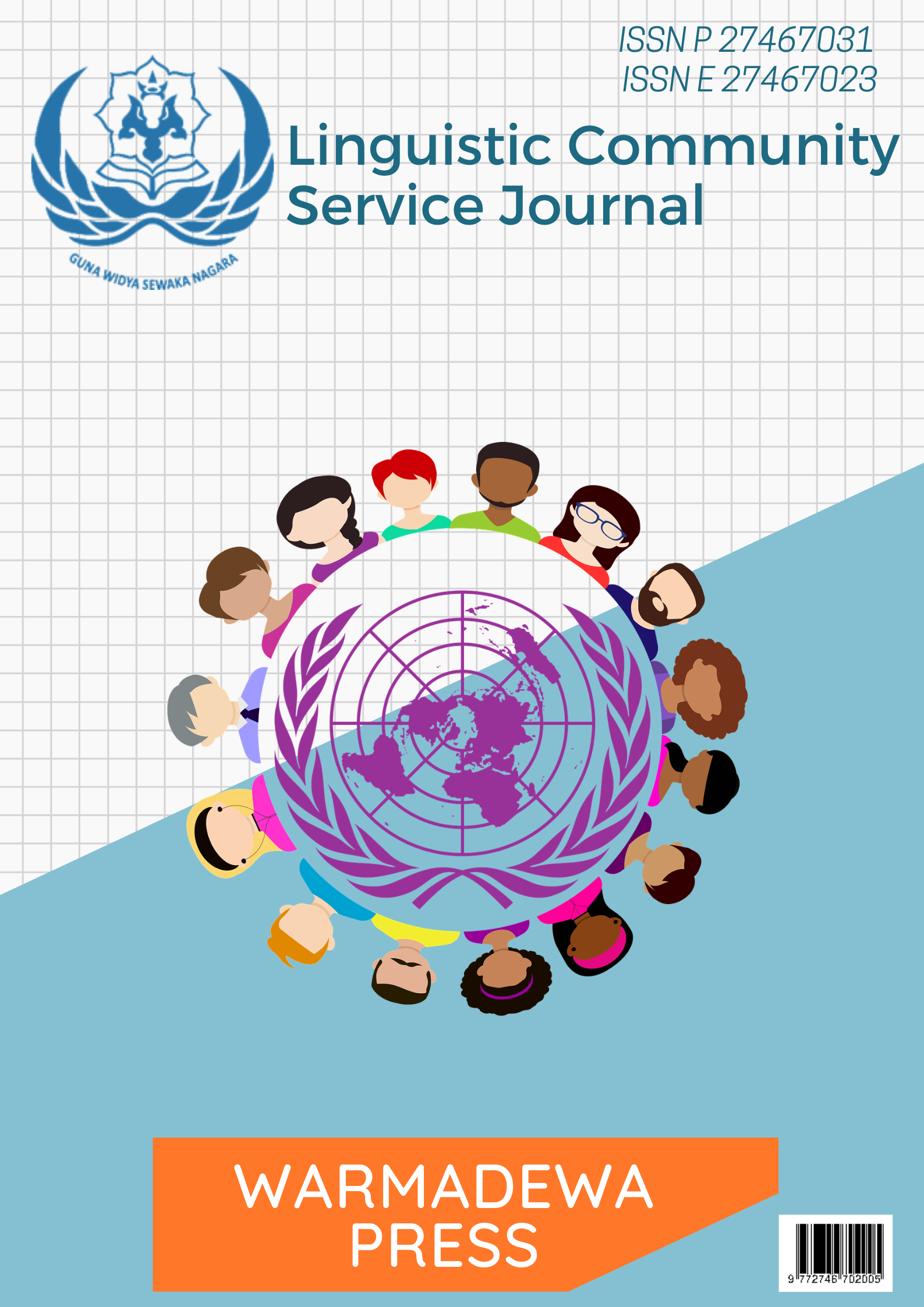Strategi Meningkatkan Kemampuan Berbahasa Inggris
Abstract
Language has been the target of studies by experts, scholars, researchers and writers in the field of language to reveal various things related to it. One issue that has often been under the highlight is language skills. As widely known, language skills are determined by two general skills, namely receptive and productive skills. Receptive skills consist of listening and reading, while productive skills consist of speaking and writing. Unfortunately, not all of the suggested findings can help foreign language learners to master it completely. Therefore, this study published in this report is the result of the implementation of Community Service activities carried out during the Covid-19 pandemic by using Zoom. Based on the results of this community service activity, this report recommends several strategies for improving language skills. This study begins with reviewing existing theories provided by experts and continued by exploring them through exploratory qualitative studies. The data in this study were collected through a literature study of language theories and language skills and strategies to improve them. The data were analyzed by sorting out theories about appropriate strategies to improve language skills separately and to improve all language skills. The result of the study shows that productive and receptive skills are better improved through routine and repetitive exercises, including communicating with ourself and others. Listening to music is an effective way to improve listening skills. Learners must be able to find a learning stimulus through the use of various electronic and online media as well. To strengthen this, teachers must combine various strategies in teaching one language skill so that students are able understand learning easily.
This journal provides immediate open access to its content on the principle that making research freely available to the public supports a greater global exchange of knowledge.
All articles published Open Access will be immediately and permanently free for everyone to read and download. We are continuously working with our author communities to select the best choice of license options, currently being defined for this journal as follows: Creative Commons-Non Ceomercial-Attribution-ShareAlike (CC BY-NC-SA)
 Abstract viewed = 6416 times
Abstract viewed = 6416 times
 PDF downloaded = 10699 times
PDF downloaded = 10699 times














